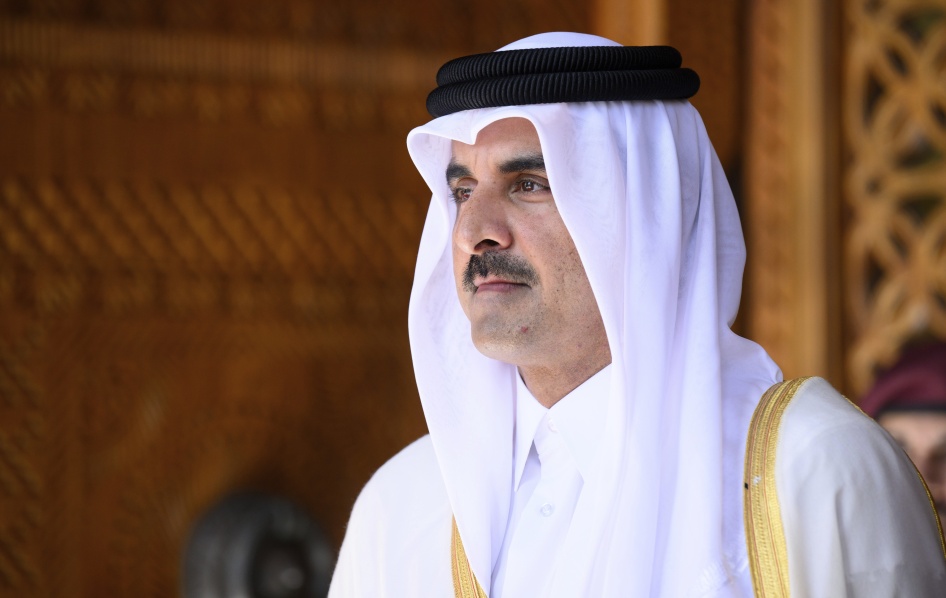(Beirut) – The upcoming visits of the Emir of Qatar, Sheikh Tamim bin Hamad al-Thani, to Bangladesh and Nepal should prioritize labor protections for migrant workers, Human Rights Watch said today. Both are key countries for Qatar’s migrant workforce, which makes up 88 percent of the country’s population. Al-Thani is expected to arrive in Bangladesh on April 22, 2024, and in Nepal on April 24.
“It is important for Qatar, Bangladesh, and Nepal to go beyond exchanging diplomatic pleasantries over their longstanding labor ties and seize this moment to publicly commit to concrete, enforceable protections that address the serious abuses that migrant workers in Qatar continue to face,” said Michael Page, deputy Middle East and North Africa director at Human Rights Watch. “The Qatari emir should not just meet heads of state, but also visit dialysis centers filled with migrant worker returnees from Qatar and speak with the families of workers who died in Qatar to see the grave consequences of inadequate Qatari labor protections.”
Migrant workers from Bangladesh and Nepal have been indispensable to Qatar’s economy, including in the preparation and delivery of the 2022 World Cup. The Qatar-to-Nepal and Bangladesh routes that the Qatari leader is taking are well-trodden, with thousands of workers making this journey daily. As “guest workers” in a country that does not offer citizenship to most foreigners, the expectation is that workers come to Qatar to work, earn money, and, sooner or later, leave.
Qatar-based jobs have enabled migrant workers to send remittances back home to their families, but many workers leave Qatar worse off than before they migrated. They experience abuses that include wage theft, contract violations, and chronic illness linked to unsafe working conditions.
Many migrant workers do outdoor work and are exposed to Qatar’s extreme heat, and the lack of worker protections from this serious health hazard can take a devastating toll. Some workers also have been deported for demanding their contractually-owed wages and benefits. There have been thousands of unexplained deaths of young, healthy migrant workers in Qatar, and in many cases grieving family members receive neither an explanation of the reasons for their loved ones’ death nor compensation from employers or Qatari authorities.
The governments of Bangladesh and Nepal should not only highlight the importance of remittances but also the high costs that workers often bear to earn them, such as wage theft and recruitment fees. A 2020 survey found that the average recruitment costs for Bangladeshis going to work in Qatar was about US$3,863, equivalent to 18 months of earnings in Qatar. Workers take out informal loans at exorbitant interest rates to pay the fees. Research by Human Rights Watch has shown the role of Qatar-based companies in driving up worker-paid recruitment fees.
Qatar’s failure to safeguard worker rights and inadequate compensation mechanisms means that the responsibility is shifted to the origin countries’ governments to address harm originating in Qatar.
Many workers returning from Qatar are burdened with long-term diseases such as chronic kidney failure, for which the Nepali government provides free dialysis services. Families of many migrant workers who have lost their lives in Qatar rely on compensation through welfare funds set up unilaterally by countries of origin.
Human Rights Watch has documented the experiences of families who received no support from Qatari authorities or their employers despite losing their primary breadwinner, since the causes of their deaths are not classified as work-related.
Recognizing the inadequacies of the compensation system, Qatar’s own Supreme Committee urged its contractors to obtain life insurance for their employees, but this was adopted only by a handful of companies, even at the height of the 2022 World Cup when the world’s eyes were on Qatar’s migrant rights record.
The climate crisis is likely to worsen the risks to workers, which will further increase the care burden to overstretched healthcare systems in countries like Nepal and Bangladesh. These countries themselves are on the front lines of climate catastrophes despite their negligible greenhouse gas emissions.
Qatari authorities have introduced labor reforms, but Human Rights Watch has shown that they came too late and were too little and too narrow in scope. They have not abolished the abusive kafala (labor sponsorship) system that enables these abuses in its entirety.
Qatari authorities have claimed these reforms were not about the World Cup alone but a part of a process that continues beyond the tournament. Yet post-World Cup, many workers were stranded in Qatar in difficult conditions.
The labor agreements that are anticipated to be updated and signed during the emir’s visits should incorporate concrete provisions to address these issues, and the agreements themselves need to be made publicly available, Human Rights Watch said.
The significance of labor reforms or the agreements with migrant origin countries boils down to their implementation and their effectiveness in addressing widespread abuses, which requires strong enforcement mechanisms. Diplomatic visits, labor agreements, or labor reforms ring hollow if homecoming continues to be marred by unpaid wages or benefits, chronic kidney disease, and uninvestigated and uncompensated deaths.
“Public commitments by the Qatari emir to concrete, enforceable worker protections during these two high-profile visits, including compensation to workers who faced serious abuses and families of the deceased, would be the best way to mark his trips to the homes of millions of current and former workers who have helped transform Qatar,” Page said.
UPDATE (4/22/2024):
Qatar’s emir also visited the Philippines over the weekend, another significant origin country for migrant workers.








